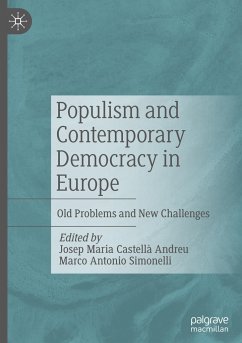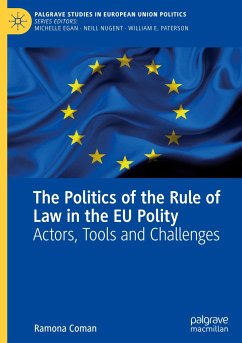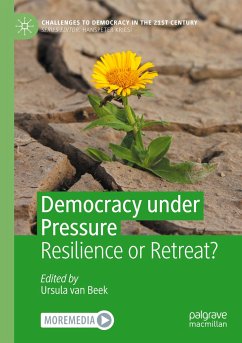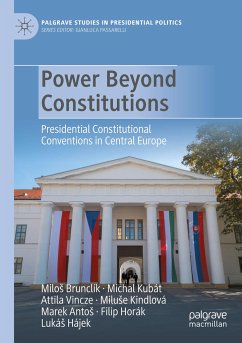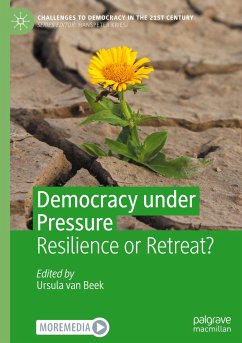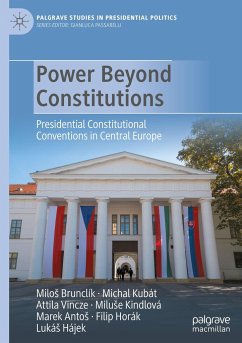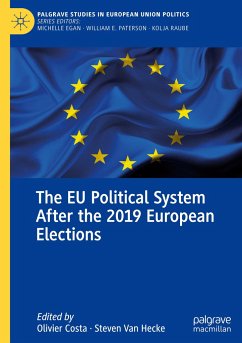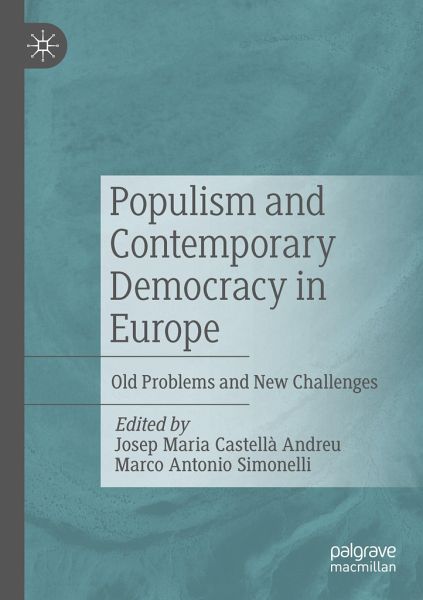
Populism and Contemporary Democracy in Europe
Old Problems and New Challenges
Herausgegeben: Castellà Andreu, Josep Maria; Simonelli, Marco Antonio
Versandkostenfrei!
Versandfertig in 6-10 Tagen
113,99 €
inkl. MwSt.

PAYBACK Punkte
57 °P sammeln!
This book provides a comprehensive analysis of the impact of populism on the European democratic polity. In the last two decades, European democracies have come under strain amid growing populism. By asserting the superiority of the majority over the law, of direct democracy over representation, and claiming the necessity to defend national sovereignty against foreign interferences, the populist conception of democracy is in stark contrast with the longstanding Western notion of liberal democracy. This volume investigates populist attempts to radically change what Bobbio called the "rules of t...
This book provides a comprehensive analysis of the impact of populism on the European democratic polity. In the last two decades, European democracies have come under strain amid growing populism. By asserting the superiority of the majority over the law, of direct democracy over representation, and claiming the necessity to defend national sovereignty against foreign interferences, the populist conception of democracy is in stark contrast with the longstanding Western notion of liberal democracy. This volume investigates populist attempts to radically change what Bobbio called the "rules of the game" of democracy from an eminently legal perspective. Weaving together normative and empirical analysis, the contributions focus on the institutions that have suffered the most from the rise of populism as well as those that have better resisted the populist tide. Special attention will be paid to the Venice Commission's opinions and documents, as they represent the best European standards toevaluate the extent to which populism deviates from constitutional democracy requirements. The book also considers the responses of European States to the explosion of the COVID-19 pandemic. The COVID-19 pandemic has indeed been an accelerator of known and studied trends in most constitutional systems, such as the concentration of powers in the executive hands and the consequential loss of parliament's centrality. Various forms of populism across Europe have thus found an ideal breeding ground to implement their agenda of granting the executive broad regulatory and decision-making powers while loosening parliamentary and judicial checks. Against this backdrop, the book analyses how European democracies should adapt to the challenges posed by the pandemic, as this reflection can help respond to populist threats and propose a way forward for liberal democracy.





